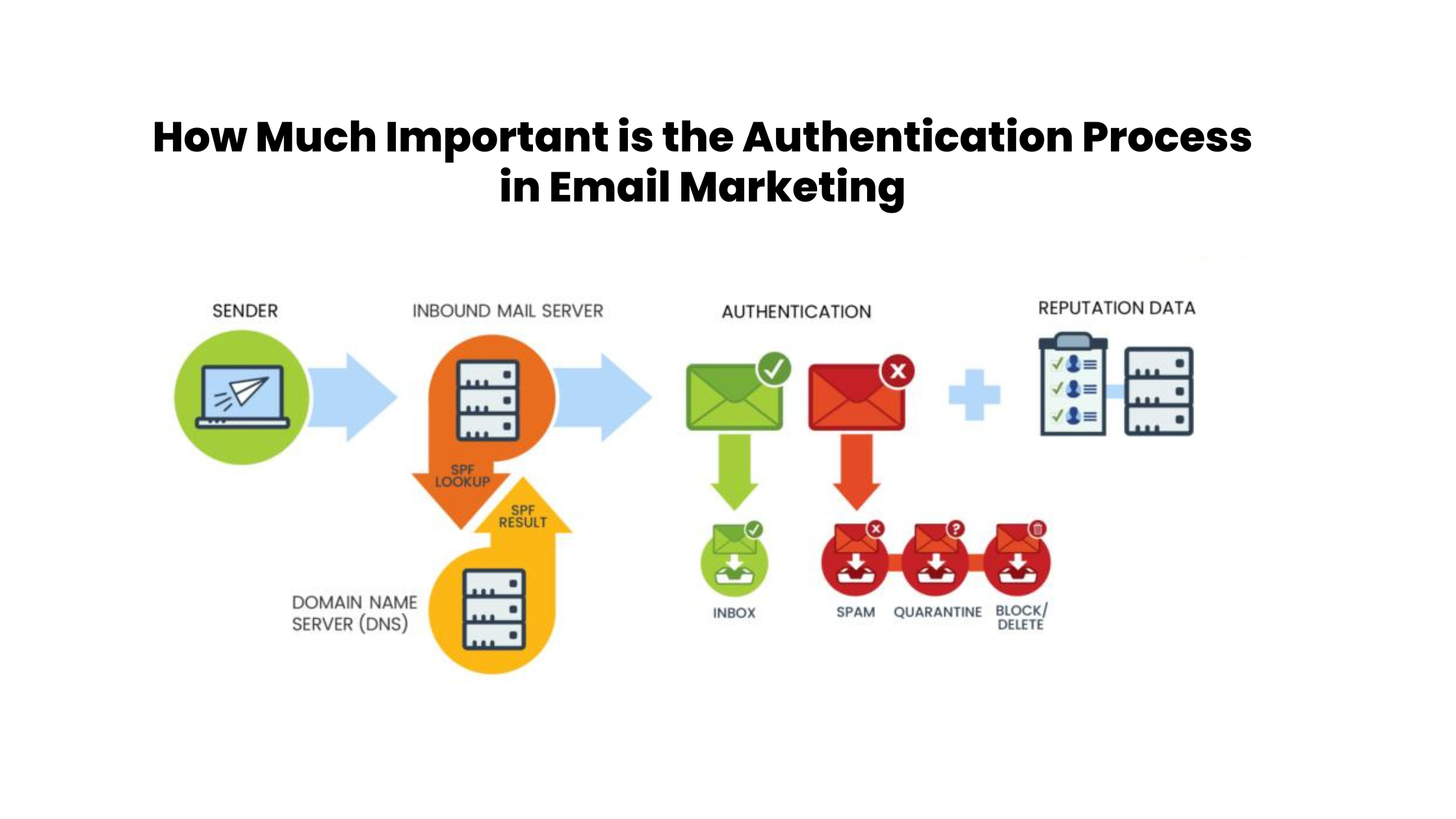Would you like to know How Much Important is the Authentication Process in Email Marketing? The purpose of this blog post is to inform you only about that.
At the heart of every successful digital marketing strategy lies the power of email marketing.
However, for email marketing campaigns to achieve their full potential, maintaining email integrity through the authentication process is crucial.
In this blog post, we delve into the nuances of email marketing authentication – what it is, why it’s important, and how to implement it effectively.
After reading this blog post, you will have a complete understanding of How Much Important is the Authentication Process in Email Marketing.
Why is Authentication Important in Email Marketing?
Authentication in email marketing allows the recipient’s email server to verify the sender’s identity, therefore ensuring the proper delivery of the message.
A proper authentication process has multifold benefits:
Maintaining a credible sender reputation
A verifiable identity decreases the chances of your emails being perceived as spam.
Increasing email deliverability and open rates
Authenticated emails are less likely to be redirected to the spam folder, increasing overall deliverability and open rates.
Protecting against phishing attacks and spamming
Authentication can act as a safety guard limiting scenarios of identity theft and reducing spam.
Improving customer trust and brand reputation
By ensuring the authenticity of your communication, you build trust with the customer and fortify your brand reputation.
Key Elements of Email Authentication
There are three key components of email authentication:
Sender Policy Framework (SPF)
SPF allows the receiving mail server to check that incoming mail claiming to come from a specific domain comes from an IP address authorized by that domain’s administrators.
It aids in maintaining your domain’s reputation and helps keep your messages out of spam folders.
DomainKeys Identified Mail (DKIM)
DKIM adds a digital signature to every email.
This signature, linked to your domain, helps mail servers verify that the message wasn’t changed during transit and authenticate the sender.
Domain-based Message Authentication, Reporting & Conformance (DMARC)
A DMARC record tells receiving mail servers what actions to take when they encounter emails that defy SPF or DKIM protocols.
It’s an extra layer of protection against phishing and spoofing attempts.
Efficient Methods to Enhance Your Email Marketing Authentication Process
Implementing the above measures effectively ensures that your email marketing communication is secure.
Additionally, the following strategies can help you boost your email authentication process further:
Consistently monitor authentication (SPF, DKIM, and DMARC) performance
Regular performance checks can help you spot issues and fix them proactively.
Implement a dedicated IP address
A unique IP address exclusively for your email marketing can add legitimacy to your campaigns by preventing association with other, potentially unpromising, campaigns.
Be cautious with URL shorteners
Some URL shortening services are associated with spamming, which can affect your email deliverability.
Regularly cleanse your email list
Understand and engage with your active user base, and prune inactive or disinterested users to maintain a high engagement rate.
Benefits of Implementing a Strong Email Authentication Process
Besides fulfilling the basic requirement of email deliverability, a robust email authentication process can:
Prevent your emails from being flagged as spam
It aids in maintaining your domain’s reputation and helps keep your messages out of spam folders.
Ensure higher email deliverability rates and better engagement
A successful delivery directly impacts the open rates and increases overall campaign success.
Enhance brand protection and customer trust
It conserves your domain’s integrity by preventing its use in phishing scams or spamming activities.
Improve email marketing ROI
All of the above, collectively, ensure a higher engagement and conversion rate, boosting your email marketing return on investment.
Conclusion
We hope after reading this blog post, you are much clearer about How Much Important is the Authentication Process in Email Marketing.
The importance of a secure and authenticated email marketing strategy cannot be overstressed.
Implementing SPF, DKIM, and DMARC mechanisms aren’t mere checkboxes.
They are intricate, crucial components of your email outreach program, ensuring that your messages make it to the intended recipient’s inbox, boosting email success rates, and fortifying your brand’s credibility.
So, make email authentication a priority today, for better conversions tomorrow.
Read More : Why Digital Marketing as a Career Interview Question



